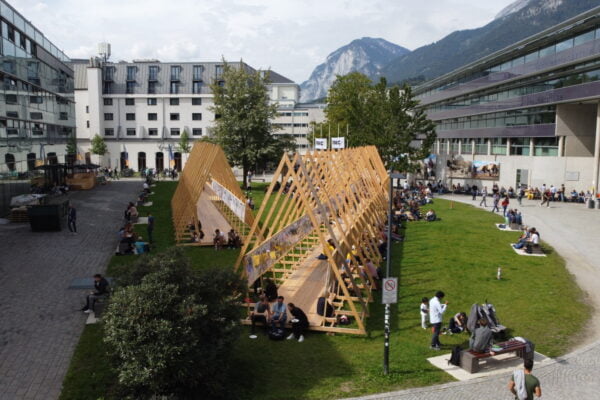
NAME:
SOWI - Garden
BUILDING:
SOWI
FLOOR:
0
TYPE:
Garden
CAPACITY:
2000
ACCESS:
Public Access
EQUIPMENT:
---
Socio-ecological transformations and challenges in mountain regions are increasingly pointed out by researchers, as well as local stakeholders and international policymakers. Despite recognizing the challenges hindering sustainable development in mountain regions, research struggles to contribute to transformative processes that enhance community resilience and long-term transformations. Transdisciplinary collaborations (TDCs) for knowledge production are widely seen to navigate the complexity characterizing mountain regions while encouraging the implementation of action-oriented research. However, their success depends on certain characteristics of TD approaches, such as reflexivity, heterogeneity, mutual learning, and horizontality, which can significantly hinder the practical application of research outcomes if not reflected thoroughly. Departing from this issue we underwent a formative evaluation analysis of ongoing and recent TDCs in mountainous contexts, engaging academic and non-academic actors, to identify and reflect on challenges and critical aspects that characterize TDCs in mountain regions. Our analysis draws on case studies of previous TDCs, peer-to-peer exchanges among researchers as well and workshops and interviews with actors involved in these collaborations. We identified several critical challenges, including power imbalances between academic and non-academic actors, conflicting or unarticulated expectations, and difficulties in integrating diverse knowledge systems. Drawing insights from this in-depth analysis and formative evaluation we propose a set of adaptive guidelines to support the successful design, engagement and implementation of TDCs, particularly from an academic perspective. This contribution presents a framework of adaptive guidelines derived from the formative learning process and discusses criticalities and challenges encountered in its development. We show that adopting a TD approach to produce knowledge is not an uncontested terrain and must be deconstructed, discussed and re-constructed to foster more inclusive, sustainable, and actionable science in mountain regions.
